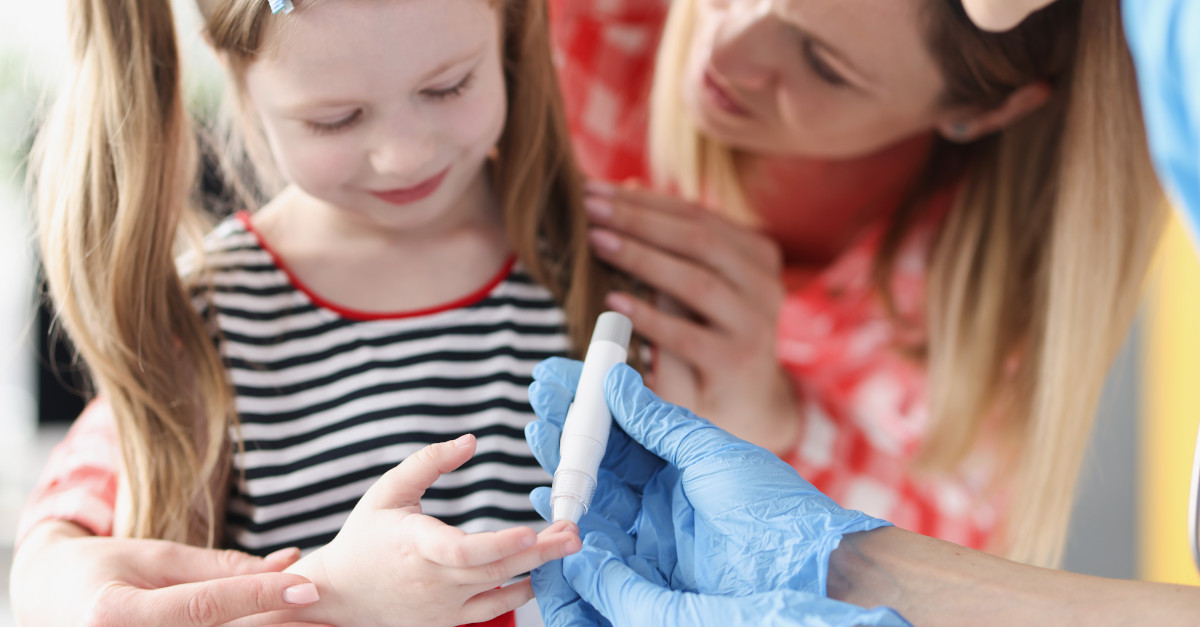In Diabetes 101 (Part 1), we covered diabetes risk factors and symptoms. In honor of National Diabetes Month this November, we’re further showcasing how to manage diabetes after diagnosis.
Both type 1 and type 2 diabetes are chronic illnesses, meaning they require lifelong management. While receiving a diagnosis will be life-altering in many ways, people with diabetes can go on to maintain an excellent quality of life.
Type 2 diabetes can be influenced by lifestyle factors, but type 1 diabetes is believed to be caused by an autoimmune reaction within the body. The two types may therefore be managed in slightly different ways, but there are also many similarities between care for both. Here’s a closer look into what it’s like to live with diabetes, and how it can be managed.
The Basics of Diabetes Management
Your diabetes care plan may look different from the next person’s. Factors such as the type you’re diagnosed with, current activity levels, family history, and the state of your health when diagnosed can all play a role in how your diabetes will need to be managed. However, there are a few core fundamentals on which most plans are based. These include following a nutrient-rich diet, staying physically active, and taking any necessary medications.
Monitoring & Managing Your Blood Sugar
“While eating well, exercising, and taking medication are the pillars of diabetes management,” Janel Ray, RN, BSN, Clinical Educator at Morgan Medical Center explains, “all of these activities support one main goal: controlling blood sugar (glucose) levels.” Maintaining healthy blood sugar levels is critically important for preventing serious complications, such as problems with the nerves, eyes, digestive and cardiovascular systems, and sores.
Because having diabetes means you’re unable to make enough insulin (or don’t use it properly), glucose can build up in your bloodstream. These spikes in blood sugar levels can happen for a number of reasons, including having too much food, being inactive, dehydration, not getting enough insulin from medication, and even other illnesses or outside stress.
Conversely, it’s also possible for people with diabetes to have their blood sugar levels fall dangerously low. This can occur from not having enough food or waiting too long between meals, taking too much insulin, suddenly increasing exercise, or drinking alcohol.
Our providers will familiarize you with the steps you’ll need to take to monitor and manage your blood sugar, no matter what is causing levels to rise or fall. Upon diagnosis, your doctor may ask you to begin tracking your glucose levels right away, but will advise you on which testing method to use, your target blood sugar levels, and how often to test.
Additional Steps for Managing Diabetes
Tracking your blood sugar is not the only key to managing diabetes. To keep levels within a healthy range, you may need to make some other lifestyle changes, as well.
“Most people with diabetes,” Laura Hays, RDN, LD, Food and Nutrition Manager at Morgan Medical Center asserts, “will need meals that have plenty of protein, plus regular portions of vegetables, healthy starches, and fats. It will also be important to be mindful of your sugar intake, especially when it comes to added sugars found in soda, candy, and baked goods, which can cause glucose levels to spike.”
Exercise will also be a valuable tool in helping you maintain your blood sugar levels, but be sure to check in with your doctor about the best physical activities and when to do them.
When it comes to medication, some may need to start taking insulin shortly after being diagnosed, while others are able to manage their diabetes through lifestyle changes. It all depends on several of the factors above.
For assistance in managing your diabetes, or for any other healthcare needs, visit your primary care physician or turn to Morgan Physician Services, conveniently located inside Morgan Medical Center. Our dedicated team of providers is here to support your family with compassionate, quality healthcare. Learn more about Morgan Physician Services or call us at (706) 438-1275.

